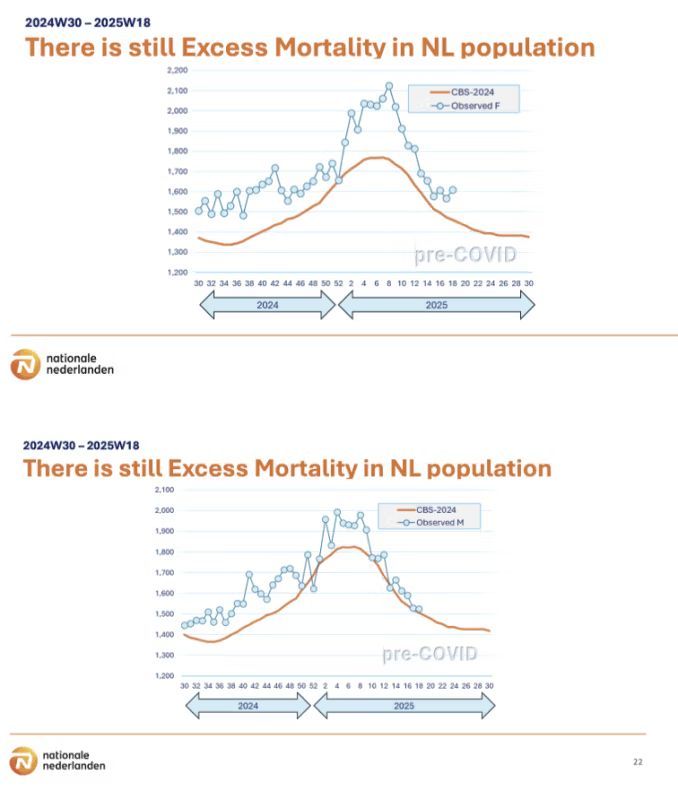“Strengthening the immune system is much more effective in preventing infections than any measures”.
“Strengthening the immune system is much more effective in preventing infections than any measures”.
Since the outbreak of the coronavirus, we have mainly had to adhere to measures. But why has the immune system not or hardly been in the spotlight? Carla Peeters, PhD in immunology and nutrition & lifestyle expert, also believes that too little attention has been paid to strengthening the immune system. According to her, we are playing catch-up. “We need an optimally functioning immune system for fewer infections through natural defences and a good response to vaccines.” This time in the section Another sound a basic lesson in immunology and lifestyle.
Let’s start with what immunology means. The immune system protects us through various defence mechanisms. When the immune system does not function properly, it can result in diseases such as autoimmune diseases, allergies and cancer. The immune system may also be involved in metabolic diseases, cardiovascular diseases and neurodegenerative diseases, such as Alzheimer’s disease. The immune system can be divided into the innate immune system and the adaptive immune system.
The innate and the adaptive immune system
The innate immune system is the first and not specific defence mechanism. It stops all potential disease-causing organisms. “This system is formed by physical barriers, such as skin, saliva and mucous membranes. These mucous membranes contain cells (macrophages, neutrophils, basophils and mast cells) that secrete substances that destroy viruses and are eliminated by these cells. In many cases this is enough to stop a pathogen or foreign substance. If too much pressure is put on this immune system, it switches to the second defence mechanism, the adaptive immune system.
The adaptive immune system is the second defence mechanism. Cells from the innate immune system present the pieces of the pathogen or foreign substance to B cells and T cells of the adaptive immune system. “Both B and T cells are activated. The B cells cause the release of antibodies. The antibodies formed move freely in the blood and can bind foreign pathogens. The pathogen-antibody complex is then broken down and cleared away by macrophages, among others. There are also T cells that directly target pathogens that have entered cells. They can help to destroy these infected cells and on the other hand strengthen the antibody response by B cells and also keep it in check again.”
The B and T cells can develop into memory cells. These cells are activated much faster during a subsequent infection than during the first infection. “The memory causes an increased antibody response, often with a stronger binding to a protein of the pathogen and a broader response against several pieces of the protein (epitope). This increases the chance that the pathogen will be cleared effectively and quickly. You can see this in natural infections and also in vaccinations. The chance of becoming ill from an infection decreases.”
What can we do to support our immune system?
Sixty to seventy percent of the cells of the immune system are located in our intestines and are connected to the intestinal flora. A healthy bacterial flora in the intestines, skin and mucous membranes is important for a properly functioning immune system. What choices can we make ourselves to support our flora and thus our immune system? “Healthy diet and lifestyle. It is known that the intestinal flora changes when we eat differently and exercise less. Both of these have been happening during the lockdowns. During a prolonged lockdown it is much more difficult to stick to it. When we are bored or under stress, we consume foods that are less beneficial to the immune system. Because sports activities are closed during the winter months, people also move less. A quarter of the Dutch population gained weight during the corona crisis, with an average of 5.6 kilos.”
Her advice is to eat 200-300 grams of vegetables a day, one or two pieces of fruit and a maximum of five glasses of alcohol spread over the week. Add to this a daily 30-minute walk in the sunlight for much-needed exercise, energy, warmth and vitamin D. “If you don’t make enough vitamin D or get it in other ways, all sorts of processes in the body don’t work or don’t work properly, including the activity of immune cells. I used to get cod liver oil drops, you don’t hear about that anymore. In 2018, Minister Bruins decided to remove the reimbursement for vitamin D from the basic health insurance. The Health Council has not yet decided to reinstate vitamin D in the basic insurance while this could lead to many savings.”
“A spring dip is often linked to a lack of vitamin D and sunlight.”
People who ended up in ICU during the first wave of the Corona-crisis were mainly overweight, type 2 diabetes or cardiovascular diseases such as hypertension. “In the second wave, it was mostly immigrants. People with darker skin produce vitamin D much more difficult. We often don’t realise that we have a deficiency.” What are the symptoms of a deficiency? “Overtired, irritable, depressed, reduced ability to think, there are quite a few complaints in which vitamin D is involved. If the body has too low a concentration of vitamin D, it will choose for itself what it will use it for in order to survive. The immune system can then slow down or become less effective, allowing pathogens to multiply and invade more easily. A spring dip is often related to a lack of vitamin D and sunlight. The sun is very important for our survival.
Many studies now show that vitamin D plays a very important role in the proper functioning of the immune system to control the SARS-CoV-2 virus. This was already known much longer for other upper respiratory infections such as the influenza virus. The same applies to vitamin C, another vitamin that has received too little attention according to Carla. “High concentrations of both vitamins can even reduce the severe form of Covid-19 Acute Respiratory Distress Syndrome.” Preventive vitamin D 2000 IU for young people over 16 and adults and, for example, at least daily an apple with peel because of vitamin C in combination with beneficial flavonoids and healthy bacteria on the peel, says Carla. “Possibly with some extra vitamin C. For younger children, the dose can be adjusted proportionally. For the elderly and people with chronic diseases, a higher dose may be needed temporarily.”
The importance of vitamins C and D to prevent severe Covid-19
From the start of the pandemic, Carla has told various media, such as NPO1, Trouw, Brabants Dagblad, HP De Tijd and also politicians, VWS and via VNONCW-MKB Nederland to the OMT the importance of, among other things, vitamin D and vitamin C to prevent the severe form of Covid-19 and also as extra support in the treatment. “In the meantime, this view has been called for attention both nationally and internationally by medics and other scientists. Two hundred scientists and doctors have drawn the attention of governments worldwide to the role and importance of vitamin D in relation to a SARS-CoV-2 infection. In England, two hundred doctors recently suggested vitamin C as a treatment for Covid-19. Minister van Ark sent a letter to the House of Representatives on the 27th of February 2021 stating that vitamins D and C can be used as adjuvants in the treatment of Covid-19.
Clinical research with vitamins D and C in this context is funded by ZonMW.” In February, DSM launched a new form of vitamin D, calcifediol, in collaboration with an Australian organization Bioclinic. Spanish doctors achieved very good results with this form of vitamin D for the recovery of patients with severe Covid-19. Vitamins D and C alone won’t get you there, because according to Carla, it’s about making people realise that diet and lifestyle are the most important things for a strong immune system and preventing bacterial or viral infections. “It requires leadership over your body, so taking more responsibility. What can I do to keep my body healthy? A growing number of people realise that this is important, but for years little attention has been paid to this. What I find difficult is that because of the pressure and fear caused by lockdowns, closed schools and sports facilities, loss of work, and the measures of the past year, people are actually making the wrong choices.”
Healthy diet and lifestyle
Strengthening the immune system by healthy diet, lifestyle and extra vitamin D (in summer by exposing the skin to sunlight) and vitamin C, magnesium and in case of a cold zinc, is much more effective in preventing infections than all measures from mouth masks to a test society, says Carla. “Moreover, this way, without measures, mental and psychological health can be boosted again. Above all, it creates room for herd immunity and new virus variants can keep other bacteria and viruses in check.”
Rapid tests, she says, are not suitable for testing people without symptoms. “With a low prevalence, only 25 percent of the positive results can be truly positive. With a self-test, this is estimated at 10 percent. And a negative result does not mean that we can say with certainty that someone does not have an infection. So there are false positives and false negatives. We have already paid a billion euros in the first months of 2021 to test mostly people and children without symptoms. The tests are not suitable for that. And now testing is done so that people can go to the casino or a party again, while those tests are unreliable. Even in England they now realise that this does not make sense. We do not know what we are doing. Fortunately, last week some hospitals and health insurers wrote a fire letter to the cabinet that it would be better to invest the investments for a test society in a better diet and lifestyle.”
Coronavirus is seasonal
An extra boost of spring is that we are in a favourable period as far as viruses are concerned, because the coronavirus is seasonal. This means that from April/May onwards it will be less and less present and cause fewer infections. “It is going to decrease now because of the weather. After the first wave, the infection rate was low all summer because the temperature was too high. People are going to go outside again and exercise more in the sun and get in better shape and have more fun. This leads to a healthier diet, more vitamins and less stress, all of which helps reduce the number of infections. In addition, it is wise to minimise the use of mouthguards and disinfectants, as their frequent and prolonged use weakens the natural flora and thus the immune system and actually promotes infections.”
Het bericht “Strengthening the immune system is much more effective in preventing infections than any measures”. verscheen eerst op Good Care Feels Better.




